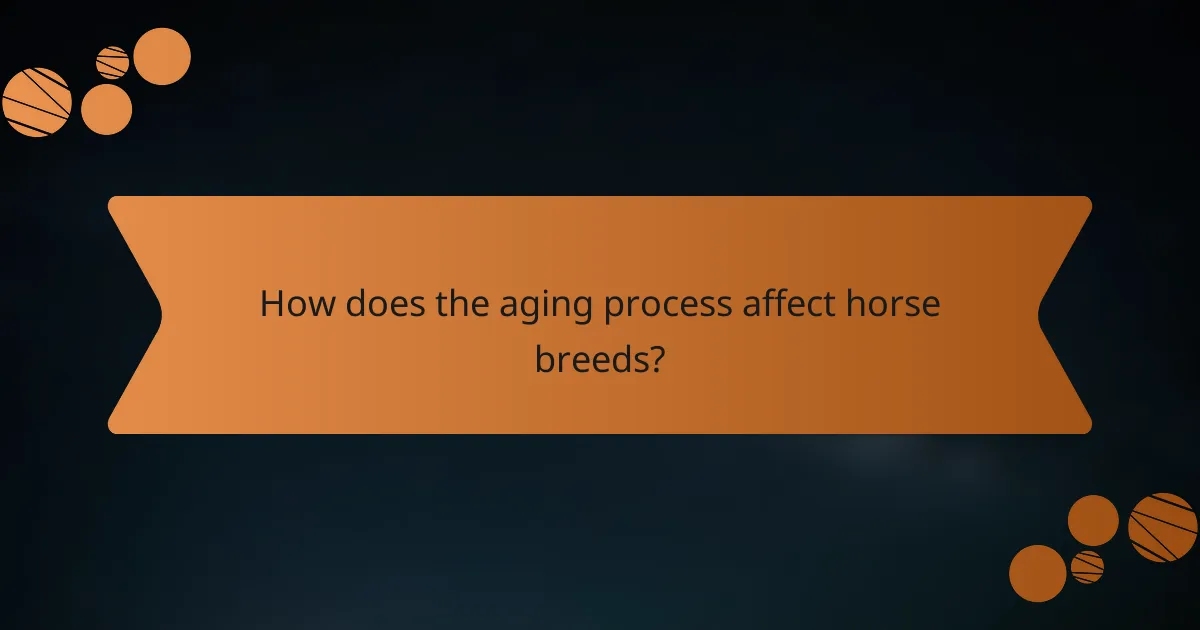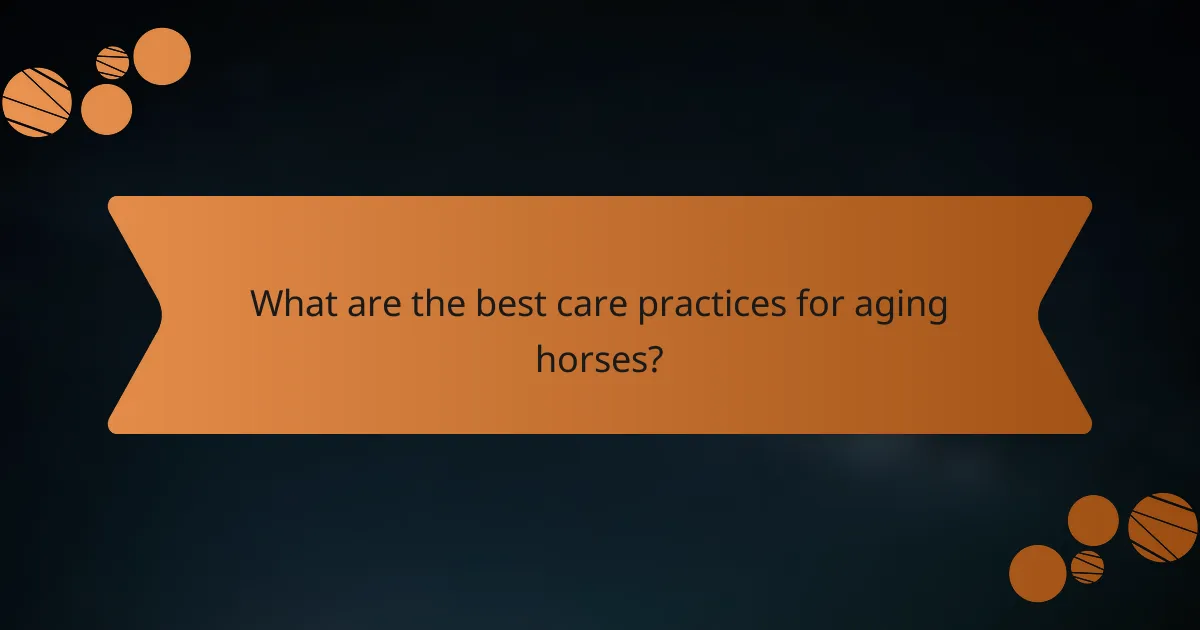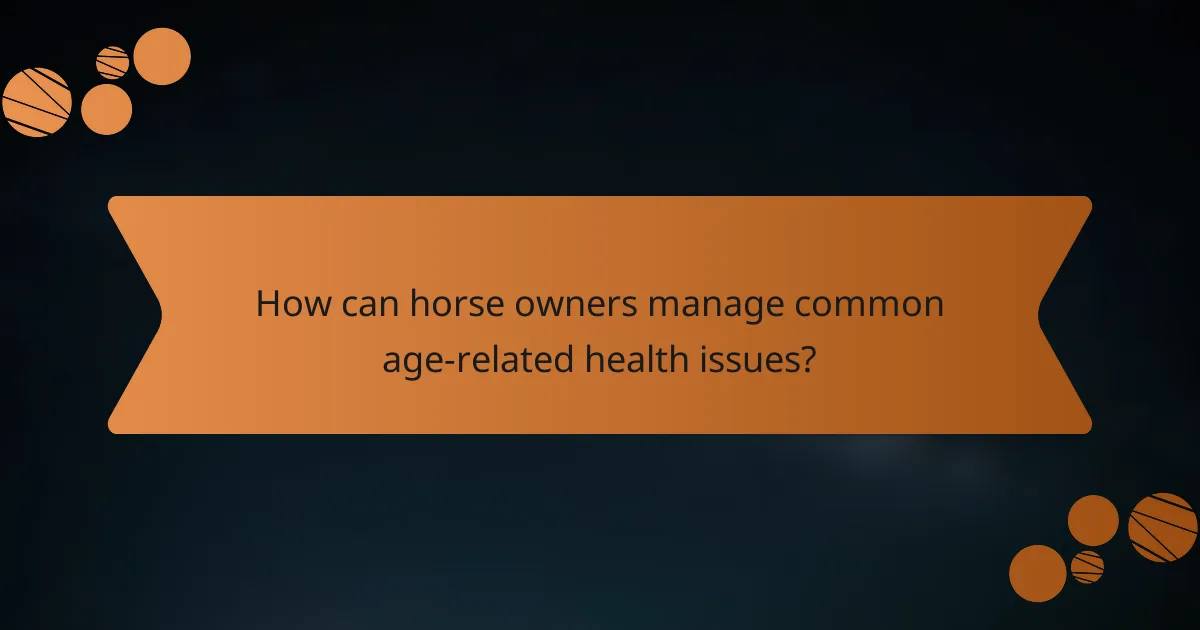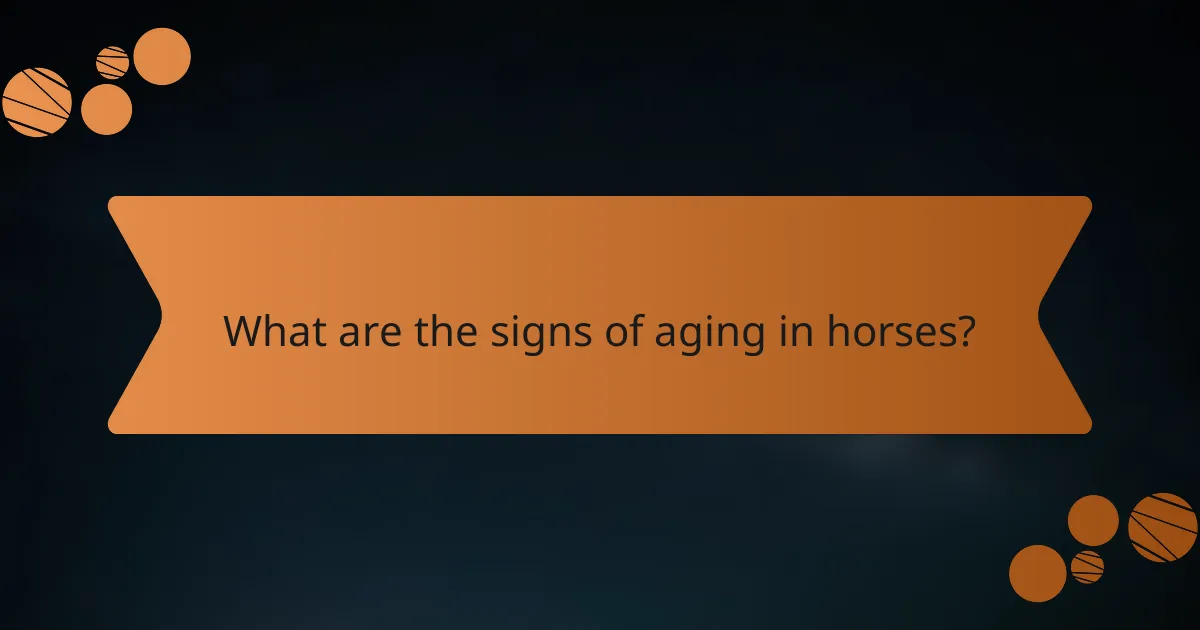Understanding horse breeds involves recognizing their average lifespan, which typically ranges from 20 to 30 years, influenced by factors such as genetics and care. As horses age, they undergo physical and behavioral changes that can increase health risks, making it essential to provide appropriate care. Tailored nutrition, regular veterinary visits, and diligent dental care are vital for maintaining the well-being of older horses and ensuring they enjoy a good quality of life.

What is the average lifespan of horse breeds in the United States?
The average lifespan of horse breeds in the United States typically ranges from 20 to 30 years, depending on the breed and care provided. Factors such as genetics, nutrition, and overall health significantly influence how long a horse lives.
Thoroughbred lifespan: 25-30 years
Thoroughbreds generally have a lifespan of 25 to 30 years, though many factors can affect this range. Proper care, including regular veterinary check-ups and a balanced diet, can help maximize their longevity. Thoroughbreds are known for their athleticism, which can lead to injuries that may impact their lifespan.
Arabian lifespan: 25-30 years
Arabian horses are renowned for their endurance and often live between 25 to 30 years. Their robust health and adaptability contribute to their longevity. Regular exercise and a healthy diet are essential for maintaining their vitality throughout their lives.
Quarter Horse lifespan: 25-30 years
Quarter Horses typically enjoy a lifespan of 25 to 30 years, making them one of the longer-living breeds. Their calm demeanor and versatility in various equestrian disciplines can lead to a fulfilling life. Consistent care and attention to their physical needs are crucial for their longevity.
Appaloosa lifespan: 20-30 years
Appaloosas have an average lifespan ranging from 20 to 30 years, depending on their care and genetics. Known for their distinctive coat patterns, these horses thrive with regular exercise and social interaction. Ensuring they receive proper nutrition and veterinary care can help them reach the higher end of their lifespan range.

How does the aging process affect horse breeds?
The aging process impacts horse breeds by causing physical and behavioral changes, as well as increasing the risk of health issues. Understanding these effects is crucial for providing appropriate care and ensuring a good quality of life for older horses.
Physical changes in aging horses
As horses age, they typically experience a decline in muscle mass and an increase in body fat, which can affect their overall condition. Their teeth may wear down or become loose, making it difficult for them to chew food properly. Regular dental check-ups are essential to maintain their nutrition and health.
Older horses may also develop joint stiffness and arthritis, leading to decreased mobility. Providing a soft, well-bedded environment and considering joint supplements can help alleviate discomfort and improve their quality of life.
Behavioral changes in older horses
Older horses often exhibit changes in behavior, such as increased lethargy or a decrease in interest in activities they once enjoyed. They may become more sensitive to their environment, showing signs of anxiety or stress in unfamiliar situations. Consistent routines and familiar surroundings can help ease these behavioral changes.
Additionally, older horses may require more patience and understanding from their handlers, as they might not respond as quickly as younger horses. Training sessions should be shorter and more focused to accommodate their changing energy levels.
Common health issues in aging horses
Aging horses are prone to various health issues, including metabolic disorders like Cushing’s disease and insulin resistance. Regular veterinary check-ups are crucial for early detection and management of these conditions. Monitoring their weight and diet can also help prevent complications.
Other common health concerns include respiratory issues and skin problems, which can arise due to a weakened immune system. Ensuring a clean living environment and providing appropriate vaccinations can mitigate these risks. Regular exercise, tailored to their abilities, is also important for maintaining overall health.

What are the best care practices for aging horses?
To ensure the well-being of aging horses, focus on tailored nutrition, regular veterinary visits, and diligent dental care. These practices help manage health issues and enhance the quality of life for senior equines.
Nutrition adjustments for senior horses
As horses age, their nutritional needs change significantly. Senior horses often require diets that are higher in fiber and easier to digest, such as senior feeds or soaked hay. Consider incorporating high-quality forage and supplements that support joint health and overall vitality.
Monitor body condition regularly to adjust feed amounts accordingly. A body condition score of 5-6 is generally ideal for older horses, ensuring they maintain a healthy weight without becoming overweight.
Regular veterinary check-ups
Routine veterinary check-ups are crucial for aging horses to catch health issues early. Schedule visits at least twice a year, or more frequently if your horse has existing health concerns. During these check-ups, your veterinarian can assess overall health, monitor for common age-related conditions, and adjust care plans as needed.
Keep a record of vaccinations, deworming schedules, and any treatments administered. This information helps your vet make informed decisions about your horse’s care and can improve their longevity.
Importance of dental care
Dental care is vital for senior horses, as dental issues can lead to pain and difficulty eating. Have your horse’s teeth examined at least once a year by a qualified equine dentist or veterinarian. Regular floating can help maintain dental health and prevent problems like sharp edges or loose teeth.
Pay attention to your horse’s eating habits. If they start dropping food, chewing slowly, or showing signs of discomfort, consult your veterinarian promptly to address potential dental issues.

How can horse owners manage common age-related health issues?
Horse owners can effectively manage common age-related health issues by maintaining regular veterinary check-ups, adjusting diets, and providing appropriate exercise. Early detection and proactive care are crucial for ensuring the well-being of aging horses.
Managing arthritis in older horses
Arthritis is a prevalent issue in older horses, often leading to stiffness and discomfort. Owners should consult with a veterinarian to develop a tailored management plan that may include anti-inflammatory medications, joint supplements, and physical therapy.
Regular, low-impact exercise can help maintain mobility and reduce stiffness. Consider activities like walking or light riding, which can promote joint health without excessive strain.
Preventing colic in aging horses
Colic can be a serious concern for aging horses, often exacerbated by changes in diet or reduced water intake. To prevent colic, ensure that your horse has constant access to fresh water and a consistent feeding schedule.
Introduce any dietary changes gradually, and opt for high-fiber feeds to support digestive health. Regular dental check-ups are also essential, as dental issues can lead to improper chewing and digestion.
Addressing weight management challenges
Weight management can be challenging for older horses due to metabolic changes and decreased activity levels. Monitor your horse’s body condition score regularly to assess whether they are underweight or overweight.
Provide a balanced diet that meets their nutritional needs without excess calories. Consider using weight management feeds and consult with a veterinarian for specific recommendations tailored to your horse’s health status.

What are the signs of aging in horses?
Signs of aging in horses can manifest through various physical and behavioral changes. Recognizing these signs early can help owners provide appropriate care and adjustments to their horse’s lifestyle.
Changes in coat condition
As horses age, their coat may lose its luster and thickness, becoming dull or brittle. This change can be attributed to decreased oil production in the skin and a decline in overall health.
Older horses may also experience changes in coat color, such as graying or fading. Regular grooming and a balanced diet rich in essential fatty acids can help maintain coat health.
Decreased energy levels
Decreased energy levels are a common sign of aging in horses. Older horses may tire more quickly during exercise and may prefer shorter, less intense activities.
It’s important to monitor their activity and adjust exercise routines accordingly. Providing regular, gentle exercise can help maintain muscle tone and overall health.
Behavioral signs of discomfort
Behavioral changes can indicate discomfort or pain in aging horses. They may become less social, show reluctance to move, or exhibit signs of irritability.
Pay attention to changes in their eating habits, such as reduced feed intake or difficulty chewing. Regular veterinary check-ups can help identify underlying health issues that may be contributing to these behavioral changes.

What role does genetics play in a horse’s lifespan?
Genetics significantly influences a horse’s lifespan, affecting not only longevity but also overall health and susceptibility to diseases. Certain breeds have inherent genetic traits that can lead to longer or shorter lifespans, making it essential for owners to understand these factors.
Genetic predispositions in different breeds
Different horse breeds exhibit varying genetic predispositions that can impact their lifespan. For instance, larger breeds like draft horses often have shorter lifespans compared to smaller breeds such as ponies. This can be attributed to factors like metabolic rates and the physical stress placed on their bodies.
Additionally, some breeds are genetically predisposed to specific health issues. For example, Thoroughbreds may be more prone to certain musculoskeletal problems, which can affect their longevity. Understanding these predispositions can help owners take proactive measures in care and management.
When selecting a horse, consider the breed’s typical lifespan and health issues. Breeds like Arabian horses are known for their longevity, often living into their late twenties or early thirties, while others may average a lifespan of 15 to 20 years. This knowledge can guide decisions on care, breeding, and training.


